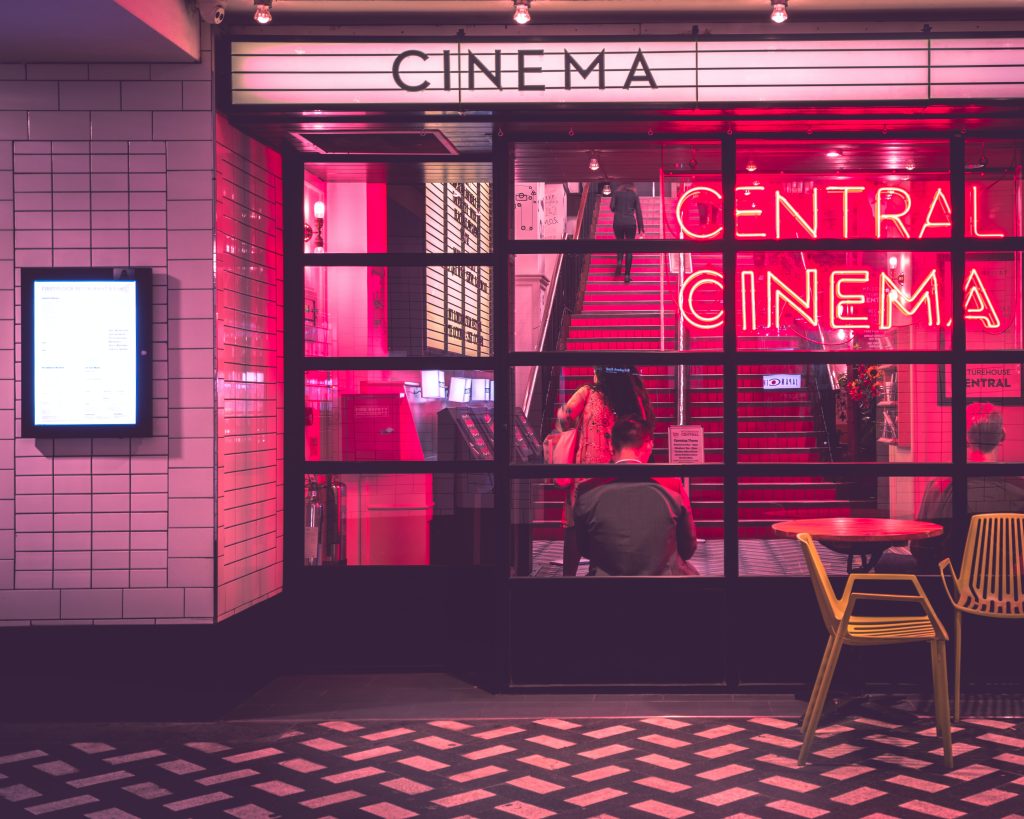
Stale popcorn and half-working escalators, overpriced, too-watery coke and the blue raspberry (what even is that?) slushy that comes with a funny shaped, reusable plastic cup that will sit on your windowsill for months, never to be used again — there’s nothing quite like the cinema. The first public performance of a film was in 1896, but with the pandemic forcing us to stay at home and the growing popularity of binge-watching culture, the cinema don’t have the same grasp on society as it once did.
Growing up, I just about lived in the theatre, taking every chance I could to watch the latest movies; it was my safe space and I enjoyed the shared experience of watching with other people. The final battle scene, where every person in the theatre gasped in shock during Twilight Breaking Dawn: Part 2 is one of my favourite memories. The complete engagement of everyone watching and reacting together is a magical experience; it’s the parameters of a cinema that create such an immersive experience. There is beauty in the absorptive quality of the cinema; it suspends disbelief, if only for a couple hours.
The effect of cinema is not easily achieved from our homes. Our modern-day instant culture seems increasingly unable to focus on one thing at a time, even if that thing is a great film. I myself am a victim of ‘instant culture’; we want it all and we want it now. But it’s to the detriment of our engagement with film, and with our beloved cinema industry. Notably, the exacerbating effects of the pandemic have forced chains such as Cineworld and Picturehouse to close permanently.
The decreased interest in physically going to a movie theatre is significant. A 2020 study showed that ‘People strongly preferring to watch movies for the first time in theatres’ was only 14%, compared to 36% strongly preferring streaming. The growing popularity of streaming services undoubtedly has and will continue to have a significant correlation on cinema attendance. Particularly now, with the development of releasing box office movies on streaming services and cinemas simultaneously. Scarlet Johansson recently took Disney to court for releasing Black Widow onto Disney Plus (it was released in cinema at the same time) without her permission, rumoured to have cost her $50 million in potential pay-outs. The streaming services are convenient for the consumer, but they are killing the cinema industry and reducing revenue on movies. This won’t only affect creme de la creme A-listers such as Johansson, but will inevitably have a knock on effect throughout the entire industry.
The public naturally prefer to use their own modern cinema systems than to go out, which is understandable considering the technological developments of the 21st Century, including Surround Sound and 4k ultra HD. Why would you spend more money on an experience when you have the convenience of cinema-quality films all from the comfort of your own home? Not to mention we have been actively advised to stay home for the better part of two years, meaning anxiety around public confined spaces is higher than ever. However, it’s time to reignite our societal love for experience-orientated cinema; not only to satisfy my personal bias, but to save the jobs of everyone working in the industry — especially those smaller, unique picturehouses, who cannot rely on chain-wide income like Vue or Cineworld.
If you’ve seen the ‘Backyard Cinema Experience’ or followed the revival of the vintage cinema, you’ll know that these are just a couple of the attempts to reinvigorate public interest in movie theatres. I’ve personally got a bucket list for just cinema alone; but I fear I’m in a weakening minority.
Now that lockdown restrictions have been lifted (for the most part), and indoor weather is approaching, it seems like the perfect time to experience movies the way they were intended: on the big screen. So, sit back and relax whilst you enjoy the big screen experience.
Image credit: Photo by Myke Simon on Unsplash
